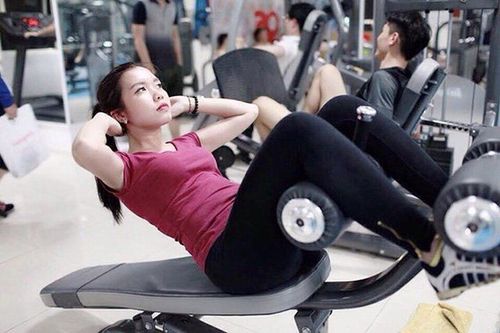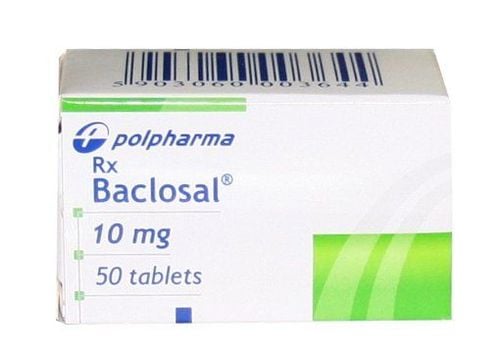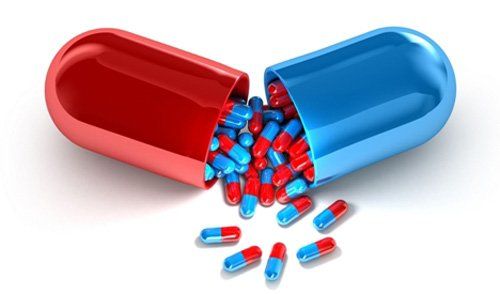This is an automatically translated article.
Muscle strain is a common condition when muscle fibers are stretched beyond normal tolerance. In fact, in daily life, everyone will surely encounter it at least once in their life, especially those who regularly practice sports. So what should each of us do when we are stressed?
1. What is a muscle strain?
In a word, muscle strain is a condition in which a muscle is stretched too much, beyond the muscle's tolerance limit. Muscle strain can occur in any part of the body, especially in the legs or arms, waist, neck, and shoulders. Usually, you will feel a muscle tension after physical activity, sports or when carrying heavy objects in the wrong position. Areas of muscle tension are painful, tend to swell, and bruises may appear.
MORE: How should muscle tension be treated?
2. Signs and symptoms of muscle tension
Symptoms that can be easily noticed when the body is tense often include:The place of muscle tension shows muscle pain, swelling or bruising; Feeling difficult to move, the lack of flexibility is very obvious; Weak tendons; When using damaged muscles or joints related to those muscles, there will be significant pain;
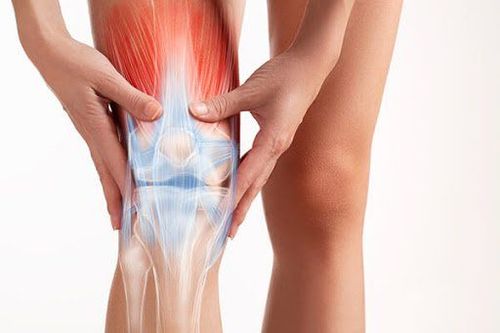
Vị trí căng cơ thường xuất hiện dấu hiệu sưng tấy, bầm tím
MORE: Excessive muscle tension: Causes, symptoms, diagnosis and treatment
3. What are the causes of muscle tension?
To be able to prevent muscle tension, especially muscle tension after sports practice or muscle tension after therapy, after vigorous exercise,... then you need to know the triggering causes such as:the muscle is overused, there is no rest, leading to a condition that exceeds the muscle's tolerance limit; Before performing physical activities, not warming up the muscles carefully, resulting in the muscles not being warmed up and relaxed enough; Muscles lack flexibility and flexibility; In addition to the causes of muscle tension that come from high intensity when exercising or exercising, there are other causes, such as:
Loss of balance or slips when running and jumping can also cause leg muscles. tension occurs. When you perform the movements of throwing or carrying heavy objects with the wrong posture, it can cause the muscle groups in the neck, shoulders and waist to be stretched too much, leading to muscle tension. Weather is also a factor in acute muscle tension, as low temperatures can cause muscles to contract.
4. What should I do when I have a muscle strain?
When it comes to muscle tension, most people can treat it at home by applying ice to the area where the muscle is stretched too much. If you have muscle tension after exercise or after treatment, you should follow the instructions below to reduce muscle tension:
Rest: You must immediately stop your work or exercise. yourself when you notice a muscle tension so that the muscles can rest. Avoid using damaged muscle areas for a few days to protect the muscle being pulled from further damage. Ice: Cold compress is an effective method to help reduce swelling of the injured muscle. However, you should not apply directly to the muscle strain, you can use a towel or use an ice pack. Apply ice for 15-20 minutes each time about 1 hour apart, regularly apply for 1-3 days. Bandage: You can use an elastic bandage to wrap around the tense muscle until the swelling subsides. Pay attention to the force when wrapping because wrapping too tightly can affect blood circulation. Keep the injured muscle higher than your heart if possible.
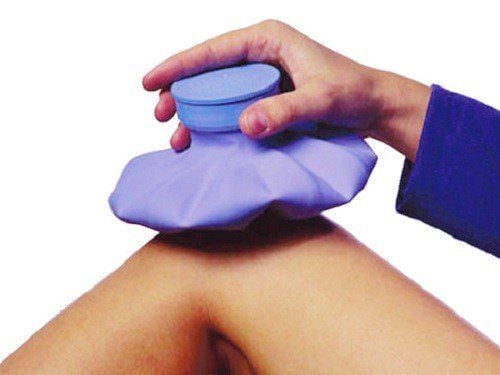
Chườm đá giúp giảm đau, giảm sưng vùng bị căng cơ
5. What not to do when you have a muscle strain?
In addition to applying the above measures to help reduce muscle tension, the patient also needs to avoid the following things so that the injured area can recover as quickly as possible:
Do not apply heat, do not use oil and Alcohol massage the damaged muscle: These two therapies will cause the ligaments to become fibrous and lose their inherent elasticity. From there, the muscles will become weaker and very susceptible to re-injury if active. No vigorous exercise: All types of intense sports should be avoided during this time because the muscles need rest and recovery. You also need to pay attention to the amount of training and rest after recovering to avoid possible complications. Participation in activities that increase pain involving the affected muscle should be avoided. For example: should stop exercising activities such as cycling, jogging, jumping, ... for a while if you have calf muscle tension.
6. When to see a doctor if you have a muscle strain?
Although you can treat muscle tension at home, but if you encounter the following signs, you should still see a specialist for timely examination and treatment:
Muscle tension lasts more than 1 week accompanied by symptoms of hot swelling, redness of the injured muscle area; The pain is getting worse when using the injured muscle group; Feeling short of breath, dizzy.
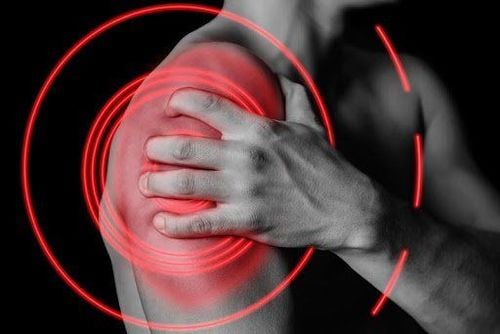
Tình trạng căng cơ kèm theo triệu chứng khó thở cần được đưa đến bệnh viện
7. Lifestyle can help you prevent muscle tension
To prevent and improve muscle tension, you can refer to some daily living habits below:
Before working out or exercising, will warm up and stretch the muscles; Keep up the habit of exercising every day to help the muscles improve flexibility; Do not sit in one position for too long, can stand back up gently; Calves and lifts objects carefully and correctly; When standing and sitting, it is necessary to have the correct posture to avoid muscle tension. Muscle gain is not a dangerous disease, but you need to handle it properly to avoid possible complications. Usually, for mild injuries, it takes only 2-3 days after treatment to fully recover. With more severe cases of muscle strain, you need to be treated by specialists to get the best recovery results without leaving side effects.
Patients with muscle strain due to work or exercise can go to Vinmec International General Hospital for examination, diagnosis and treatment to help restore muscle and joint function. Orthopedic doctors at Vinmec will perform the most advanced diagnostic methods today with the support of a system of modern medical equipment, meeting international standards to assess the condition and specify the indications. treatment regimen, intervention when necessary.
Please dial HOTLINE for more information or register for an appointment HERE. Download MyVinmec app to make appointments faster and to manage your bookings easily.




